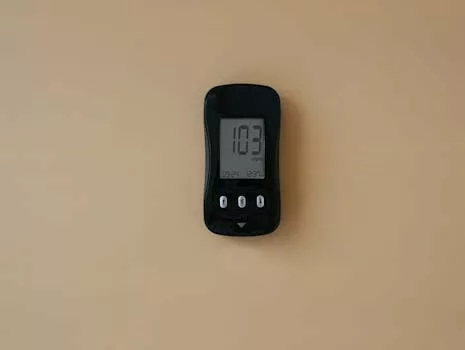
Understanding Hypertension: Causes, Symptoms, and Treatment
Takeaways:
- Hypertension is often called the ‘silent killer’ due to its lack of noticeable symptoms.
- Several factors contribute to high blood pressure, including lifestyle choices and genetic predispositions.
- Effective management of hypertension can significantly reduce the risk of serious health issues.
Hypertension, commonly known as high blood pressure, affects millions of individuals worldwide. It is characterized by the constant elevation of blood pressure in the arteries, which can lead to serious health complications if left unmanaged. In this article, we will delve into the causes, symptoms, and treatment options for hypertension, empowering you with the knowledge needed to maintain your cardiovascular health.
What Causes Hypertension?

Primary Hypertension
Primary hypertension is the most common type and typically develops gradually over many years. While the exact cause is often unknown, several factors are believed to contribute to its development:
- Genetics: A family history of hypertension can increase your risk significantly.
- Aging: As people age, their blood vessels become stiffer, increasing blood pressure.
- Lifestyle Factors: Poor diet, lack of physical activity, obesity, excessive alcohol consumption, and smoking can all elevate blood pressure.
Secondary Hypertension
Secondary hypertension is caused by an underlying condition and can occur suddenly. Some common causes include:
- Kidney Disease: Conditions affecting the kidneys can lead to increased blood pressure.
- Hormonal Disorders: Issues with hormones, such as adrenal gland tumors, can affect blood pressure regulation.
- Medications: Certain medications, including NSAIDs and some antidepressants, can raise blood pressure.
Recognizing the Symptoms of Hypertension

- Headaches: Frequent headaches, particularly in the morning, can indicate high blood pressure.
- Dizziness: Feeling lightheaded or dizzy may be a sign of hypertension.
- Nosebleeds: Although less common, recurrent nosebleeds can occur in those with high blood pressure.
- Shortness of Breath: Difficulty breathing can sometimes be linked to elevated blood pressure levels.
If you suspect you have hypertension or are experiencing any of these symptoms, it is essential to consult a healthcare professional for a proper diagnosis and treatment plan.
Treatment Options for Hypertension

Lifestyle Changes
Making healthy lifestyle choices can significantly impact blood pressure levels:
- Healthy Diet: Adopting a diet rich in fruits, vegetables, whole grains, and low-fat dairy while reducing sodium intake can help lower blood pressure.
- Regular Exercise: Engaging in regular physical activity, such as brisk walking, can help maintain a healthy weight and lower blood pressure.
- Weight Management: Losing excess weight can have a dramatic effect on blood pressure readings.
- Limiting Alcohol and Avoiding Tobacco: Reducing alcohol intake and quitting smoking can lower blood pressure and improve overall cardiovascular health.
Medications
If lifestyle changes alone are not enough to control hypertension, doctors may prescribe medications, which might include:
- Diuretics: Help the body eliminate excess sodium and water.
- ACE Inhibitors: Relax blood vessels by blocking the formation of a hormone that narrows them.
- Calcium Channel Blockers: Relax and widen blood vessels by affecting the muscle cells in the arterial walls.
It is essential to follow your healthcare provider’s recommendations and take medications as prescribed.
Conclusion

FAQs
- What is considered high blood pressure? High blood pressure is typically defined as having a reading of 130/80 mm Hg or higher.
- Can hypertension be prevented? While not all cases can be prevented, maintaining a healthy lifestyle can significantly reduce your risk.
- How often should I check my blood pressure? It is recommended to check your blood pressure at least once a year if you are healthy, but more frequently if you have risk factors or a history of hypertension.
- What foods should I avoid to manage hypertension? Foods high in sodium, saturated fats, and added sugars should be minimized.
- Is hypertension reversible? With appropriate lifestyle changes and treatment, many individuals can manage and sometimes reverse hypertension.






